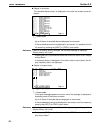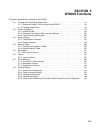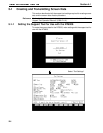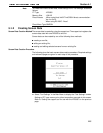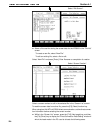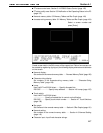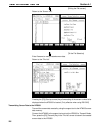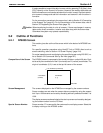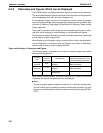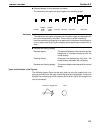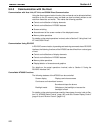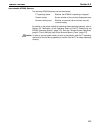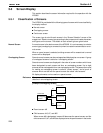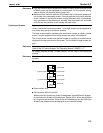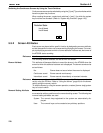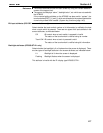
Section 4-2
5-2-2 Characters and Figures Which can be Displayed
The NT600S screen can display characters, figures, and other various elements.
This section describes the types and attributes of the characters and figures which
can be displayed and do not need to be changed at all.
For the settings, display, and use of the characters, numeric values, and graphs
which change according to the system operation status andother conditions, refer
to Section 4-4 Memory Table (page 128) and Section 5-2 Memory Tables and Bar
Graph (page 164).
The power of expression of the screen can be increased by giving various attrib-
utes such as the enlarged or reverse display to the characters and figures.
The character and figure attributes can be set in the edit screen when creating the
screen data by using the support tool.
When displaying the characters using a command from a Host, character attrib-
utes are displayed in accordance with the enlarged size, which is obtained by
executing the command, and the display attribute.
Types and Attributes of Characters and Figures
The following types of characters can be input by using the support tool and be
displayed during operation.
Character
Type
Dots
(vertical x
horizontal)
Character Set
Maximum Number of
Characters Displayed in One
Screen (without overwriting)
Half height
character
8x8
Alphanumerics and
symbols
80 characters x 50 lines
(4000 characters)
Normal
characters
8x16
Alphanumerics and
symbols
80 characters x 25 lines
(2000 characters)
Marks 16 x 16
Create by using the
support tool
When displaying characters by sending a command from a Host, only half size
characters and normal size characters can be displayed.
Marks
A mark is a graphic pattern created by combining 16 x 16 dots by using the sup-
port tool. Marks can be handled the same as the wide size characters. Up to 64
patterns can be defined within the total screen area using 2-byte codes (FF20 to
FF5F).



